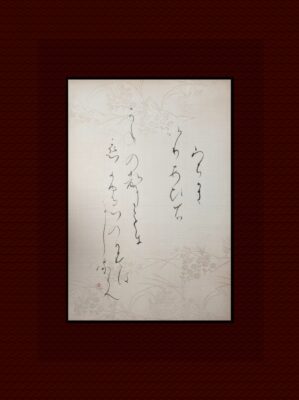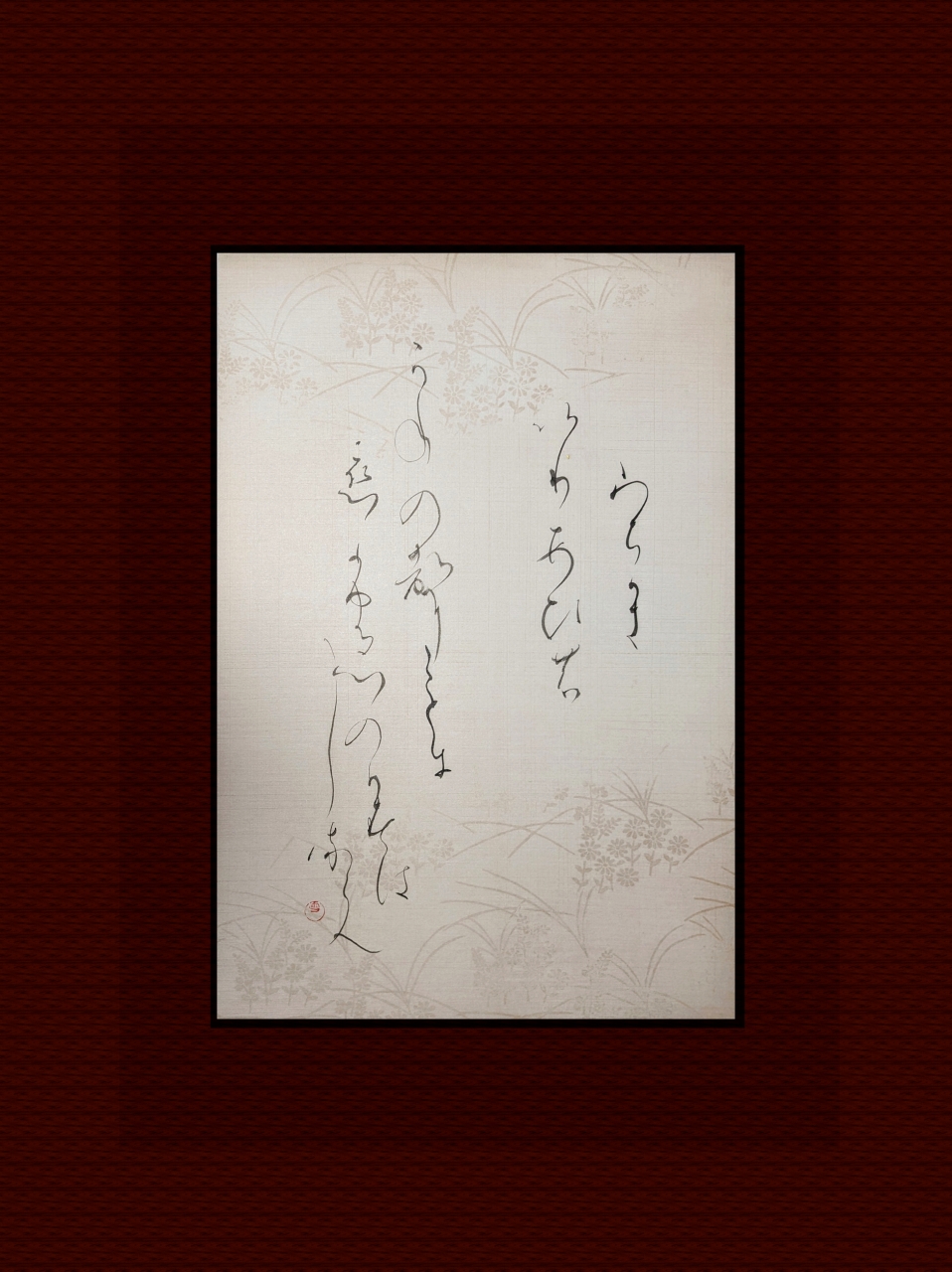#190 With every toll of the evening bell at the temple near the mountains,…

| Size: | about 25×37 cm |
|---|---|
| Dressing: | framed |
What kind of verse?
| verse: | Yama chikaki, iri-ahi no kane no, koe goto ni, kofuru kokoro no, kazu ha shiru ramu |
|---|---|
| poet: | Empress Teishi |
| in: | about 1000 |
When Sei Shonagon was staying at Kiyomizu, Empress Teishi deliberately sent a messenger to deliver a waka written in sōgana on precious red Chinese paper.
The meaning of the poem is something like, “With every toll of the evening bell at the temple near the mountains (Kiyomizudera), you will understand how many times my heart longs for you.”
brief comment
In “The Pillow Book,” it is clear that Sei Shonagon, the author, felt delighted and proud to receive a waka—a type of love poem—from her master, Empress Teishi.
What intrigued me was that Teishi wrote the waka not in “kana” (women’s script), but in “sōgana” (cursive kana). The later is cursive script of Chinese characters, and looks formal than “kana”.
I had always assumed that women of that era typically wrote in “kana.” Especially when writing to someone close, I thought they would use the softer, more intimate “kana” script. Thus, it was surprising to learn that Teishi wrote to Sei Shonagon in “sōgana.”
This work is written in “kana,” which rapidly developed around this era, rather than in the “sōgana” script used by Empress Teishi. Someday, I would like to create a piece in “sōgana” as well.

